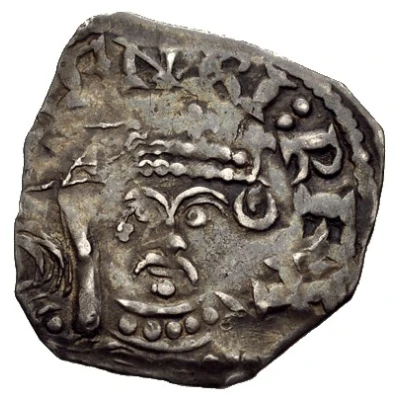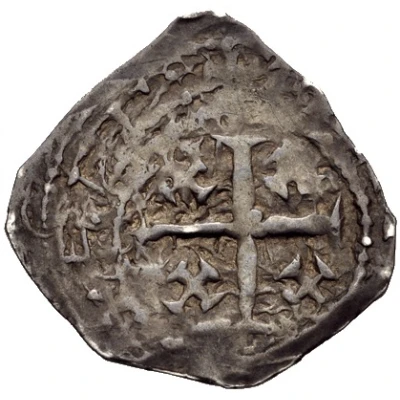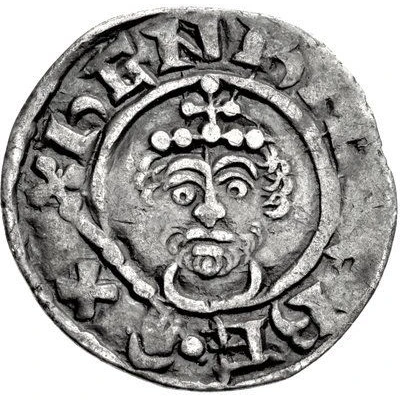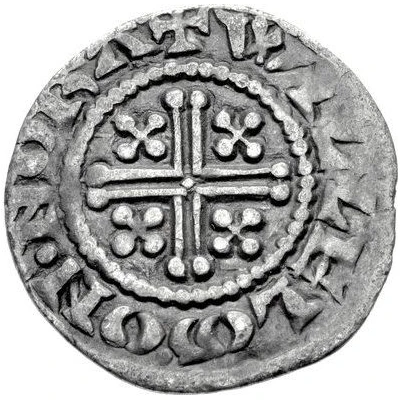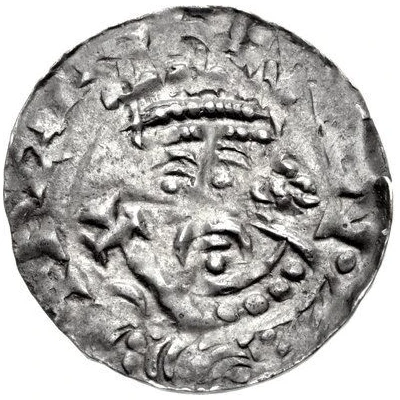
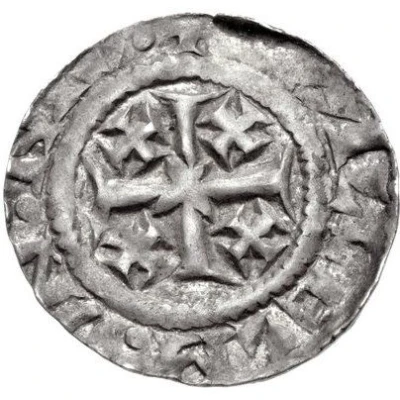

© Classical Numismatic Group, Inc.
1 Penny - Henry II Tealby coinage; class F ND
| Silver | 1.32 g | 19 mm |
| Issuer | England (United Kingdom, British Overseas Territories and Crown Dependencies) |
|---|---|
| King | Henry II (1154-1189) |
| Type | Standard circulation coin |
| Years | 1174-1180 |
| Value | 1 Penny (1⁄240) |
| Currency | Pound sterling (1158-1970) |
| Composition | Silver |
| Weight | 1.32 g |
| Diameter | 19 mm |
| Shape | Round (irregular) |
| Technique | Hammered |
| Demonetized | Yes |
| Updated | 2024-10-08 |
| Numista | N#320151 |
|---|---|
| Rarity index | 97% |
Reverse
Legend around cross pattée, with crosslets in angles.
Lettering: + WILLELM : ON : NIV :
Translation: Willelm of Newcastle
Comment
House of Plantagenet (1154-1399), Henry II (1154-89), Cross and Crosslets ('Tealby') coinage (1158-80), Class F, struck c. 1174-80.Henry II ascended the throne in 1154 but coins of Stephen's last type continued to be minted until 1158. The currency of the previous reign contained a high proportion of irregular and sub-standard pennies. The new Cross-and-Crosslets coinage bearing Henry's name was more commonly referred to as the 'Tealby' coinage, as over 6,000 of these pennies were discovered at Tealby, Lincolnshire in 1807. Twenty-nine mints were employed in this re-coinage, but once the minting had been completed, not more than a dozen mints were kept open.
Interesting fact
One interesting fact about the Standard circulation coin 1 Penny - Henry II (Tealby coinage; class F) ND (1174-1180) from England (United Kingdom, British Overseas Territories and Crown Dependencies) made of Silver weighing 1.32 g is that it features a unique design, with a crowned bust of King Henry II on the obverse (front) side, and a cross fleury on the reverse (back) side. This design was specifically created for this coinage and is not found on any other coins of the time. Additionally, the use of silver in the coin's minting was a significant departure from the more common copper or bronze coins of the time, making it a rare and valuable piece for collectors.
